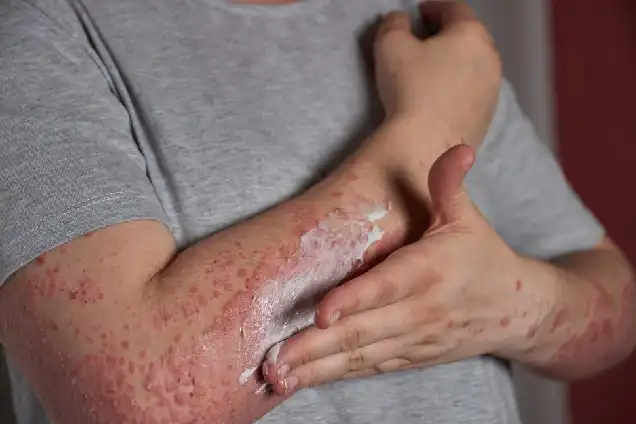
Psoriasis is a chronic autoimmune skin condition that affects 2-3% of the population globally. It is caused when the white blood cells attack the skin and speed up the life cycle of skin cells, causing them to build up rapidly on the surface of the skin. It involves a complex interplay between genetic and environmental factors. As a result skin becomes thick, scaly. These patches can be itchy, painful, and sometimes unsightly.
It is a long-term condition that keeps fluctuating between periods of remission and flare-ups.
Red, irritated skin areas covered in silvery-white scales, is known as a common form of chronic plaque psoriasis. Scalp, elbows, knees, lower back, and nails, but it can appear anywhere on the body.
Dry, cracked skin that may bleed especially when it affects the hands and feet. Itching or burning sensations are usually complained about by patients. Thickened or ridged nails and pitting of nails are seen. Joint pain occurs if associated with psoriatic arthritis. It is said that psoriasis is a systemic inflammatory disease and multiple systems get affected. Psoriasis is known to increase the risk of heart problems.
Psoriasis can significantly impact quality of life, and while there is no cure, effective treatment and management strategies can help control symptoms and improve well-being. We at Subodha skin and cosmetic clinic believe in managing psoriasis holistically by helping patients to improve their lifestyle and using appropriate systemic therapies with cautious monitoring. We believe in working together with the patient and give a plan which suits the patient's needs. The ultimate aim is to reduce the morbidities associated with psoriasis and attain a near normal life expectancy.